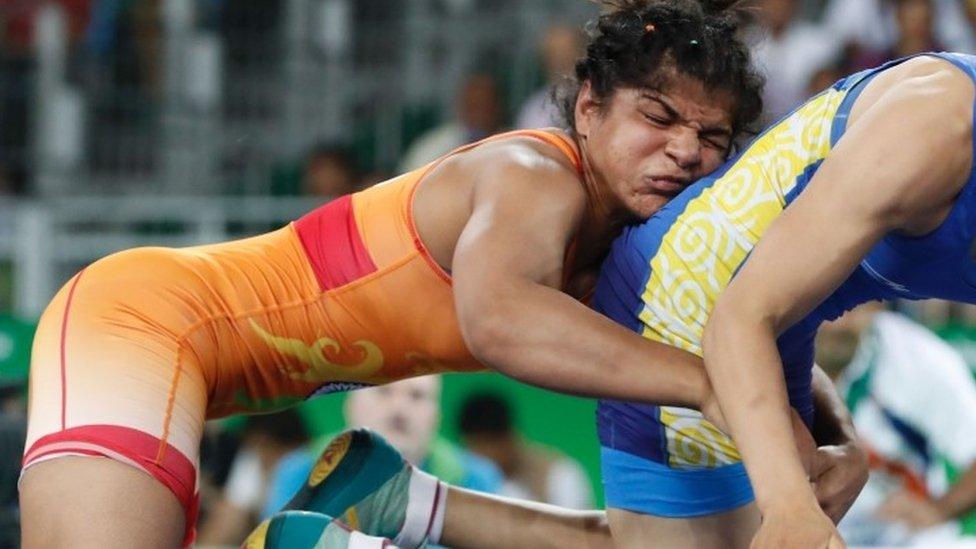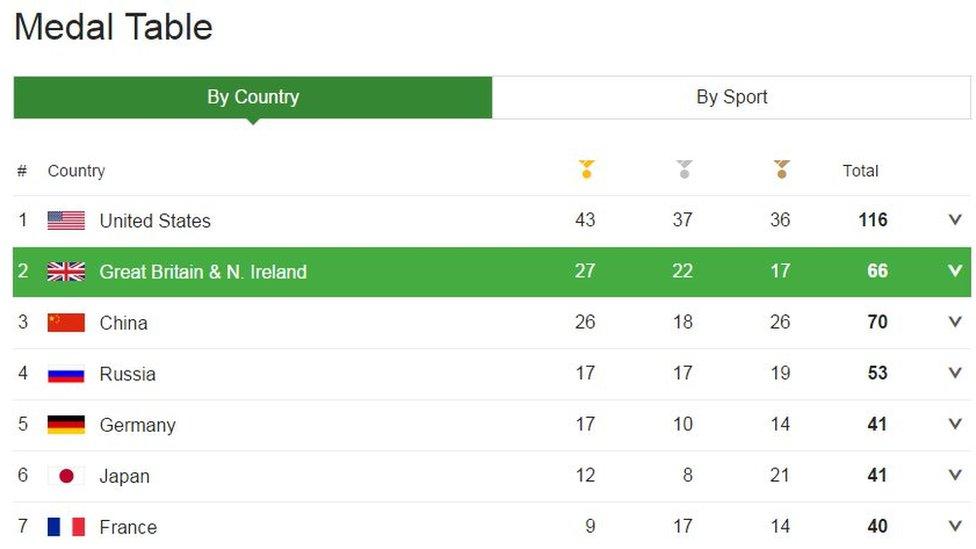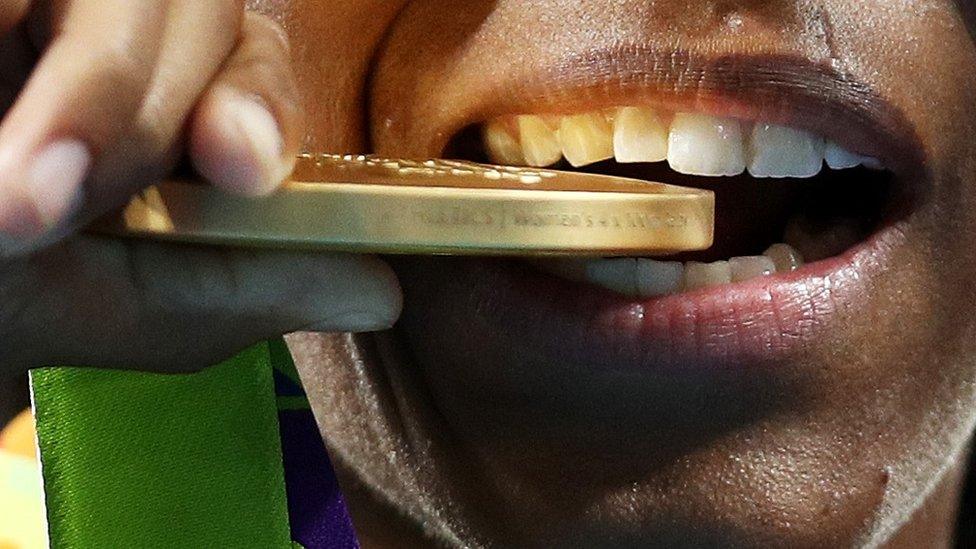And the Olympic medals champion is... Grenada?
- Published

I'm feeling a bit hazy. I was up late, watching two men standing on one foot while deploying the other in an effort to kick each other's heads.
No, this wasn't Sauchiehall Street. It was taekwondo, on the telly. I have no idea of the rules or why a Ninja-like manoeuvre in the final second won it for the bloke from Côte d'Ivoire, leaving the British finalist distraught.
But it had me hooked, and I'm not alone. Every four years, lots of us tune in to the Olympics, and watch sports to which we would never otherwise give airspace.
It's striking how different this is from my youth, when British athletes put in gutsy performances, but were often, well, a bit rubbish and amateurish, and routinely outclassed.
Now, as if it's figured out the secret of a broken slot machine, Team GB just keeps hitting the jackpot and bringing forth a deluge of medals.
So in an unpatriotic way, I was cheered to find Côte d'Ivoire had secured a gold medal, because the odds seem so heavily stacked against poorer nations.
Kabaddi karma
India, for instance, entered the final weekend of competition in Rio with one bronze, for a feisty woman wrestler and a silver for badminton.
Since 1980, it has secured one gold medal, for shooting an air rifle. Prior to that, all its gold was for hockey. Yet India is a country of more than a billion people.
Its misfortune is partly that it lacks the resources to compete at elite level and, arguably, it also lacks the necessary sporting culture.
It can also fairly complain that the Olympic Games include neither cricket nor kabaddi, the team game with Indian origins which was a demonstration sport in the 1936 Berlin Olympics.

Rio 2016 medals table, so far
This got me thinking. Perhaps there are other ways to measure a nation's success at the Olympics, rather than a simple raw medals table.
It's possible to discount for the advantages of the most populous countries, countries, or those with the economic clout to afford impressive training facilities.
Happily, it wasn't difficult to find that someone has crunched the numbers already.
At the Harvard Sports Collective, a study of the 2000, 2004 and 2008 Olympic Games looked at medals per dollar of income per head.
This put China and Ethiopia in the top two slots for each of the games. And on this count, Russia, Ukraine and Kenya were contenders for the bronze.
At the bottom end of the table, Iceland did worst at converting GDP into medals, though it may have been helped rise up the table by the 2012 Games through entering a deep recession. Such are the quirks of bringing economics into sport.
Bear in mind also this didn't account for Winter Olympics medals, at which you might expect Icelandics to do rather better. The clue's in the name.
Podium finish
Happily again, the numbers have been crunched for the 2016 Games. The website Medals Per Capita, external does exactly what it says in the web address, and more besides.
Clearly, the USA and China should be expected to deliver lots of medals, as they have lots and lots of people.
So which countries are delivering medals while having far fewer? On that count, Grenada comes top. Going into the final weekend, it had one medal, and a population of 106,000. New Zealand was second, having 16 medals. That's one for every 287,000 Kiwis.
Jamaica, the Bahamas, Denmark and Slovenia are contenders for a podium finish on this medals table.
Team GB comes in at number 19 with more than a million people per medal.
The USA is at 40 with 3m per medal, and China is in 74th place, with one medal for every 21m.
India, ignominiously, has a ratio of one medal for every 656m Indians.

What if one considers that only golds are worth counting? In that case, it is the Bahamas that moves to the top of the medals per capita gold-top table.
It's followed by Jamaica, Croatia and Fiji, which got that one gold for humbling Team GB in the rugby sevens final.
The Brits come in at number 12, and the USA behind Spain, at number 31.
The Medals Per Capita website also applies the numbers to GDP - not per capita, but in total. For this, it weights the medals, giving a gold four points, two points to silver and one for a bronze.
On that count, Grenada comes top again. It's followed in the medals per dollar of output by Jamaica, Fiji, Armenia, Georgia, Kenya and, at number seven, North Korea.
Among developed nations, New Zealand again scores best. Among those vying to get to the top of the raw medals table, Team GB comes in at number 33 in the medal/GDP table, China in 57th place and the USA at 62, trailing just behind Ireland.
Where the USA and the UK still score very highly is in their conversion rate of medals per team member. It's a sort of measure of Olympic productivity.